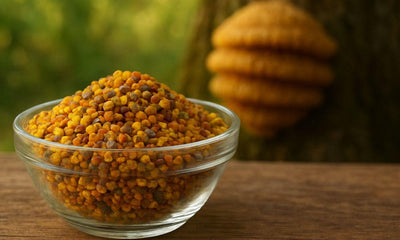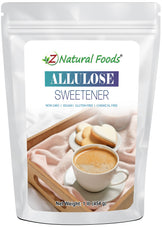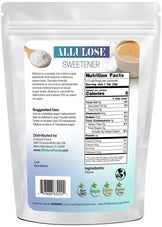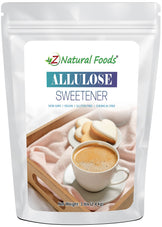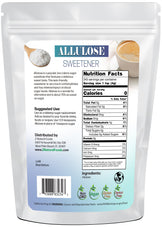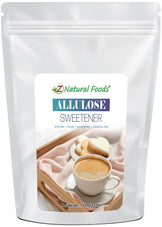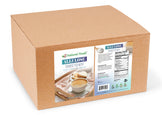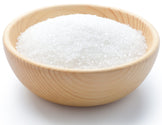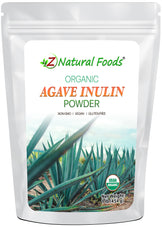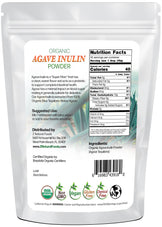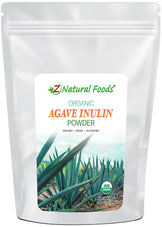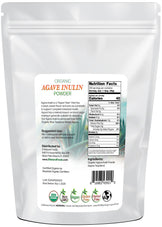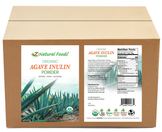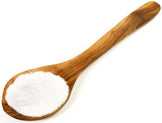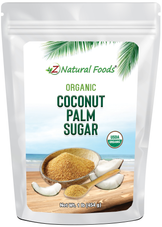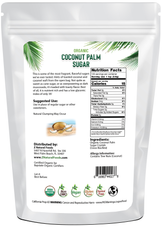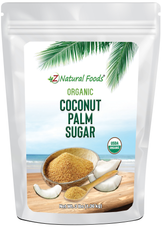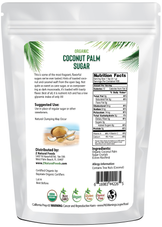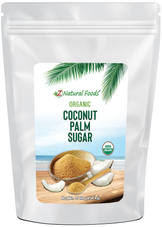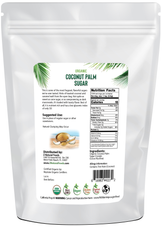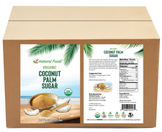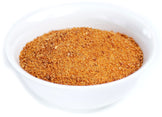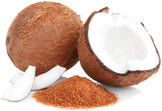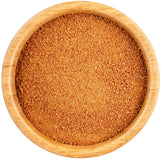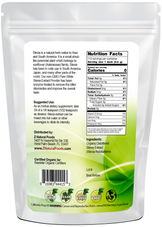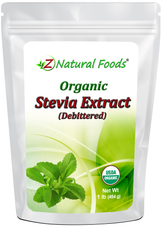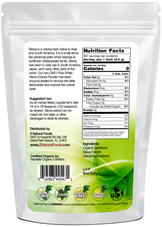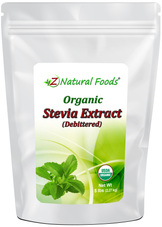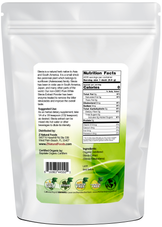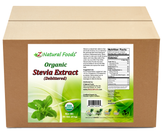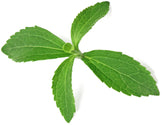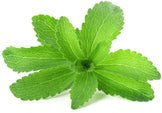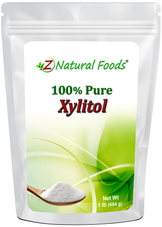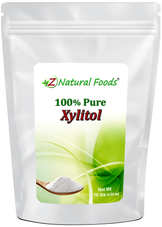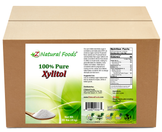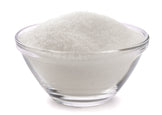Description
Description
One of the primary reasons for the boom in the natural sweetener market is what many health experts consider a public health crisis at epidemic levels.
Yes, we are referring to the relationship between sugar and obesity. But obesity is only the beginning.
This condition has been linked to and is considered a precursor to other major health issues like diabetes, heart disease, kidney failure, and failing brain health.
Is allulose the ultimate sweetener?
Allulose may be the perfect sweetener for creating the ideal flavor profile and a more stable product without bitterness, aftertaste, or negatively affecting one's health. Allulose shows the most significant potential when combined with other natural sweeteners to be highly versatile, have limitless applications, and have the ability to support overall well-being.
The purpose of this article is not to specifically convince you that allulose is far superior to every other natural sweetener but that it is another excellent tool to potentially support a balanced state of good health.
While we are still learning about the benefits, proper application, and individual uses, allulose has shown many of the same qualities and attributes as its natural sweetener counterparts in preliminary research.
As we get into the details about allulose, here is an excellent article comparing 9 natural sugar substitutes, including allulose:
So, what do we know about Allulose?
Allulose is a rare sugar naturally found in small quantities of plant foods such as maple syrup, figs, and raisins.
- Around 100 grams of dried figs provide you with 30 mg of Allulose.
- It is about 70% as sweet as sucrose, with about 10% of the caloric intake.
- Allulose has been determined to have 0.4 calories per gram compared to the four calories per gram found in sucrose.
- Therefore, allulose is a suitable transitional sweetener when moving away from sugar.
Even though allulose is a type of sugar with the same chemical formation as fructose and glucose, the preliminary research shows that the physiological impacts are quite different from traditional sugar and artificial sweeteners specific to blood sugar and brain health.
To fully understand allulose's physiological effects, it is first essential to look at its efficiency within the digestive system.
- Allulose is a monosaccharide, a single sugar molecule, so no digestion occurs after it is consumed, rapidly absorbed, and excreted.
- About 70% of the allulose we consume is absorbed by the small intestine and eventually leaves the body via urine, usually within 24 hours.
- The remainder leaves the body through the large intestines within 48 hours.
As a result, it is safe to conclude that it does not increase blood glucose or insulin levels.
This is all great information, but…
- Most natural sweeteners are a fraction of the calories compared to sugar
- Most natural sweeteners are either as sweet or sweeter than sugar and don’t have the same negative impact on blood sugar levels.
- Most natural sweeteners do not taste like real sugar.
Here is an excellent article reviewing some of the common questions we receive about allulose:
Frequently asked questions (FAQs) about Allulose sweetener
Let’s look at what some of the research says about Allulose.
In this randomized, double-blind, placebo-controlled, crossover study, thirty subjects without Diabetes were given a (50 g) sucrose load and randomized to placebo or escalating doses of D-allulose (2.5, 5.0, 7.5, 10.0 g). The subjects crossed over to the alternate study treatment after 7–14 days of washing out. Plasma glucose and insulin levels were measured at five specific points: before and at 30, 60, 90, and 120 minutes after ingestion.
The results of this study showed the following:
- D-allulose was associated with a dose-dependent reduction of plasma glucose at 30 min compared with placebo.
- Glucose was significantly lower with the 7.5 g and 10 g doses.
- Glucose was not reduced at the other time points.
- There was a dose-dependent reduction in glucose excursion compared with placebo.
- At 30 min, D-allulose was associated with a trend toward lower insulin levels compared with placebo.
- D-allulose did not reduce insulin at any other time point. Still, there was a significant dose-dependent reduction in insulin excursion compared with the placebo, marked with the 10 g dose.
In a study regarding the effect of various sweeteners on overall brain function, twenty healthy, normal adult males are given nutritional shakes (with fat and protein) sweetened with natural sugars (glucose & fructose), allulose, or artificial sweetener sucralose. The participants underwent functional MRI on four separate visits, testing before and after product ingestion. The markers specifically looked at are; changes in blood oxygen level-dependent signal, functional network connectivity, and voxel-based connectivity.
The sucralose, glucose, and fructose results were unsurprising, as many other studies have shown the adverse effects on overall brain function.
- Glucose and fructose led to significantly decreased BOLD signal in the cingulate cortex, insula, and basal ganglia.
- Glucose led to a significant increase in eigenvector centrality throughout the brain and a substantial decrease in eigenvector centrality in the midbrain.
- Sucralose and allulose did not affect the BOLD signal or network connectivity. Still, sucralose did lead to a significant increase in eigenvector centrality values in the cingulate cortex, central gyri, and temporal lobe.
This is a critical study because while allulose did not show any specific brain-supportive qualities, unlike all the other compounds used, allulose showed no adverse effects on overall brain function.
What does all of this mean for you? Most likely nothing because you probably don’t care about the science. All that most people are concerned about is taste and results.
Blah, Blah, Blah… So, what sets allulose apart from all other natural sweeteners?
Allulose is not superior as an individual entity, and its effects are not overwhelmingly unique to all other natural sweeteners.
When you already have a cabinet full and an endless supply of every natural sweetener on the market and are still trying to figure out how to create that perfect-tasting sweetener for yourself, why should you add allulose to the collection?
Like all forms of traditional herbal medicine, the power is not in ONE.
The best results traditionally come from using formulas. Formulas create balanced perfection. A well-made formula is understanding the effects of each herb and how they may affect other herbs in the formula. In simple terms, how one thing tonifies something else to create a balanced end effect. This is a very common principle in Traditional Chinese Medicine (TCM).
We are currently seeing a trend where companies are beginning to combine multiple natural sweeteners in a product to get the most pleasant raw sugar flavor. Most of these natural sweeteners' unique flavor profiles are easily detectable to the tastebuds when used individually. This is where allulose can claim to be the king of the hill because of its ability to tonify the flavor profile without bitterness and aftertaste.
We see it every day as allulose becomes more popular and is used more often to improve the flavor, quality, and shelf life for a wide range of different lifestyle favorites and new products coming on the market. In an overview discussing the advances regarding the production, uses, and functions of allulose, it was stated that allulose could enhance the properties of gel strength emulsion stability, foaminess, and oxidation resistance in food products containing egg-white protein. It is believed that this is just the beginning.
For this reason, allulose is ideal for creating better caramel sauce, lemon curds, jams, jellies, ice creams, and salad dressings.
Allulose may be the missing link to creating the ideal flavor profile and a more stable end-product without bitterness, aftertaste, or negatively affecting one's health.
Allulose shows the most significant potential when combined with other natural sweeteners to be highly versatile, have limitless applications, and have the ability to support overall well-being.
Therefore, consider making some room in your kitchen cabinet for this sweetener of the future.
To review our allulose sweetener, go here:
For more helpful information about many of our sweeteners, you are invited to review these topics:
- 9 Benefits of Monk Fruit Extract (Luo Han Guo sweetener)
- Common questions about agave inulin powder (+Keto dessert recipe)
- Why is stevia combined with erythritol? (+Summer popsicle recipe)
- Which is Better: Stevia or Sugar? (Compared)
- 6 Benefits of Using Coconut Palm Sugar (vs. White & Brown Sugar)
To review all of our sweeteners go here:
